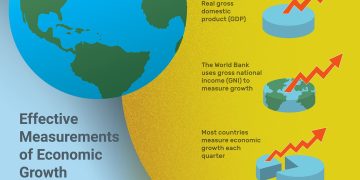Cryptocurrency has evolved from a niche digital asset to a mainstream investment class in recent years. Yet, with its growth has come increasing scrutiny, particularly from U.S. lawmakers and regulators. The debate surrounding cryptocurrency regulation in the United States is complex, with both advocates and critics weighing in on how best to manage this revolutionary technology.
As the regulatory landscape continues to evolve, American investors are left wondering: will new laws and regulations enhance the stability of the cryptocurrency market, or will they crush its potential for growth? In this article, we’ll explore the ongoing debate about cryptocurrency regulation in the U.S., how regulatory uncertainty is affecting markets, and what crypto investors can expect as lawmakers take action in the coming years.
1. An Overview of the Ongoing Debate Around Cryptocurrency Regulation in the U.S.
The debate over cryptocurrency regulation in the U.S. is a tale of two conflicting priorities. On one side, you have lawmakers and regulators who are concerned about consumer protection, money laundering, and the role of cryptocurrencies in illicit activities. On the other side, there are cryptocurrency proponents who argue that excessive regulation could stifle innovation and undermine the decentralized nature of digital currencies.
The Regulatory Landscape
As of 2023, there is no unified regulatory framework for cryptocurrency in the U.S. While the Securities and Exchange Commission (SEC) has taken the lead in regulating initial coin offerings (ICOs) and tokens that are classified as securities, other agencies such as the Commodity Futures Trading Commission (CFTC), the U.S. Treasury Department, and the Federal Reserve have also weighed in on the matter.
The SEC, under Chairman Gary Gensler, has focused on ensuring that cryptocurrencies operating as securities comply with traditional securities laws. This has led to actions against companies like Ripple Labs and projects that were deemed to have violated securities regulations. The SEC’s stance has raised concerns among crypto firms, particularly those that operate in decentralized finance (DeFi) and other non-traditional crypto markets.
Meanwhile, the CFTC has taken a somewhat different approach, regulating cryptocurrencies like Bitcoin as commodities. This bifurcation in regulatory oversight has created confusion for investors and businesses trying to navigate the legal complexities of the crypto space.
Calls for Comprehensive Legislation
While the regulatory framework remains fragmented, there have been increasing calls for comprehensive federal legislation to provide clear guidelines for cryptocurrency use and trading in the U.S. Some lawmakers, such as Senator Cynthia Lummis and Senator Kirsten Gillibrand, have proposed bills that would define digital assets more clearly, set up tax guidelines, and establish a framework for innovation while ensuring proper consumer protection.
These bills, however, are still in the early stages, and their passage remains uncertain. The cryptocurrency industry has expressed concern that piecemeal regulations from various agencies could create an unstable environment for businesses and investors. A clearer, more consistent regulatory approach would reduce legal ambiguity and provide a more secure investment environment.
2. The Potential for New Laws and Regulations to Shape the Future of Digital Currencies
As the U.S. government continues to consider new cryptocurrency regulations, there is significant debate about what form those regulations should take. Several key areas are under discussion, including taxation, anti-money laundering (AML) measures, and consumer protection.
Taxation and Reporting Requirements
One of the most pressing issues for crypto investors is the taxation of digital currencies. The Internal Revenue Service (IRS) currently treats cryptocurrency as property, which means that every time an investor buys or sells cryptocurrency, it may trigger a taxable event. This has made tax reporting for cryptocurrency investors complicated, especially given the high volume of transactions that can occur in a short period of time.
Proposals from lawmakers like Senator Lummis and others aim to simplify the tax code for cryptocurrency transactions, potentially introducing clearer reporting requirements and more streamlined procedures for filing taxes on digital assets. This could make crypto investing more appealing to retail and institutional investors who have been discouraged by the complexity of the current system.
Anti-Money Laundering (AML) and Know-Your-Customer (KYC) Regulations
Another key area of focus for U.S. regulators is the role of cryptocurrencies in money laundering and illicit activities. Cryptocurrencies, by nature, allow for pseudonymous transactions, which has raised concerns about their potential use in illegal activities, such as drug trafficking or financing terrorism.
To address these concerns, U.S. lawmakers may introduce stricter AML and KYC regulations for crypto exchanges and other businesses involved in digital currency transactions. This could include requirements for exchanges to verify the identity of their users and report suspicious activities to authorities, similar to the standards applied to traditional financial institutions.
While such regulations could help reduce the risk of illicit activity, they also raise concerns about privacy and the decentralized nature of cryptocurrencies. Striking the right balance between regulatory oversight and user privacy will be a critical challenge for lawmakers.
Stablecoins and Central Bank Digital Currencies (CBDCs)
Stablecoins, digital currencies pegged to a reserve asset like the U.S. dollar, have become a focal point of regulatory discussions in recent years. Stablecoins are seen as a bridge between traditional fiat currencies and the world of decentralized digital assets, offering a more stable alternative to highly volatile cryptocurrencies like Bitcoin and Ethereum.
Regulators are particularly concerned about the potential for stablecoins to disrupt traditional financial markets if they grow too large. U.S. lawmakers have called for more oversight of stablecoin issuers, with some proposals suggesting that stablecoins should be subject to the same regulatory standards as traditional banks.
Another area of interest is the potential creation of a U.S. central bank digital currency (CBDC). The Federal Reserve has been exploring the concept of a CBDC, which could enable the U.S. government to maintain greater control over digital currency issuance and create a more regulated, secure alternative to decentralized cryptocurrencies.

3. How Regulatory Uncertainty Is Affecting Cryptocurrency Markets and Investor Sentiment
The lack of clear and consistent regulation in the U.S. has had significant impacts on cryptocurrency markets. Investors are often caught in a state of uncertainty, unsure of how regulatory actions will affect their holdings or the value of their assets. This uncertainty has led to increased volatility in cryptocurrency prices and a reluctance among some institutional investors to fully commit to the asset class.
Market Volatility and Investor Sentiment
The cryptocurrency market is notorious for its volatility, and regulatory uncertainty only exacerbates this. For example, when the SEC announces an investigation into a major crypto project or exchange, it can cause sharp declines in the value of that project’s native token. Similarly, any talk of potential crackdowns on crypto exchanges or stricter regulations can send shockwaves through the entire market.
On the other hand, positive regulatory developments—such as the introduction of more favorable tax laws or clearer regulatory frameworks—can lead to surges in market prices as investors gain confidence in the future of digital assets. Overall, the crypto market’s sensitivity to news regarding regulation is a direct result of the current regulatory ambiguity and investors’ fears of potential negative consequences.
Institutional Hesitation and Risk Aversion
Despite growing institutional interest in cryptocurrency, many large-scale investors remain hesitant to enter the market fully. This hesitation is largely due to the regulatory uncertainty surrounding digital assets. Many institutional investors, such as pension funds and endowments, are wary of getting involved in a market that may be subject to sudden and drastic regulatory changes.
Furthermore, the lack of clarity around which digital assets are classified as securities or commodities complicates investment decisions. Institutional investors may be reluctant to commit large amounts of capital to an asset class that could face significant regulatory hurdles in the near future.
4. Expert Analysis on What Crypto Investors Should Expect in the Coming Years
While the future of cryptocurrency regulation in the U.S. is still unclear, experts agree that a few trends are likely to shape the regulatory landscape in the coming years.
Increased Regulation, but Innovation Continues
Experts predict that we will see more regulation in the crypto space, particularly in areas like taxation, anti-money laundering, and investor protection. However, they also believe that regulators will ultimately allow for innovation to continue, as digital currencies and blockchain technology offer significant potential for economic growth and financial inclusion.
The Rise of Regulatory Clarity
The hope among crypto advocates is that regulatory clarity will eventually emerge, providing businesses and investors with a more predictable environment. In particular, a more defined framework for stablecoins, DeFi projects, and token offerings could foster greater institutional participation and public trust in the cryptocurrency market.
Global Regulatory Pressures
The U.S. is not acting alone in its regulatory efforts. Other countries, such as China and the European Union, are also grappling with how to regulate cryptocurrencies. As international regulators develop their own approaches, the U.S. may be forced to adjust its policies to remain competitive in the global digital asset space.
Conclusion
The future of cryptocurrency in the U.S. hinges largely on how lawmakers choose to regulate the industry. While some regulatory intervention is inevitable, it remains to be seen whether these laws will promote growth and stability or stifle innovation and market potential. For investors, understanding the regulatory landscape—and its evolution—will be critical for making informed investment decisions.
As the market continues to mature, those who stay informed about legislative developments and adapt their investment strategies accordingly will be best positioned to navigate the complexities of cryptocurrency regulation.



































